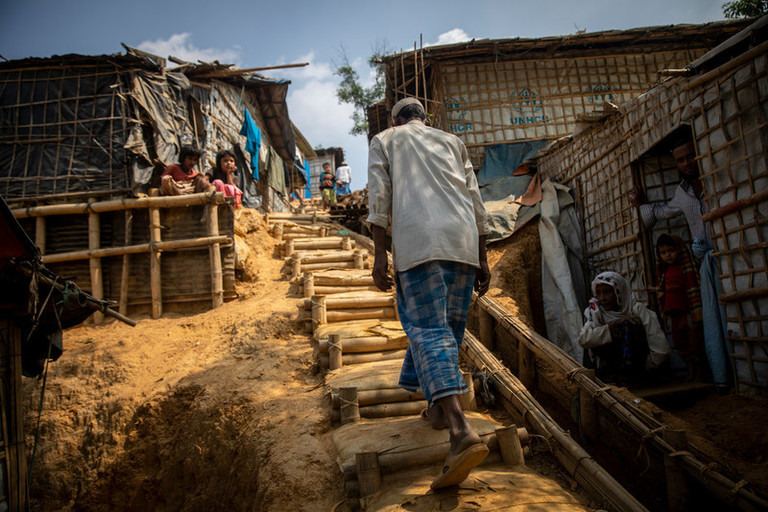Overview
Our world is facing an irreversible demographic shift.
More people are reaching old age than ever before. The number of people in the world aged over 65 is expected to double in the coming decades, reaching an estimated 1.6 billion by 2050.
Older people are too often stereotyped as being dependent on others. They are seen as recipients of charity, rather than as rights holders who can make their own choices.
During armed conflict, older people are disproportionately impacted by violence, yet they are often overlooked in humanitarian responses.
During the Covid-19 pandemic, governments enacted policies that resulted in thousands of avoidable deaths in care homes around the world. These decisions also created unprecedented levels of social isolation among older people.
Protections of older people’s human rights are often weak, and sometimes non-existent. Amnesty International is campaigning to stop age discrimination and to create laws that protect the rights of older people.
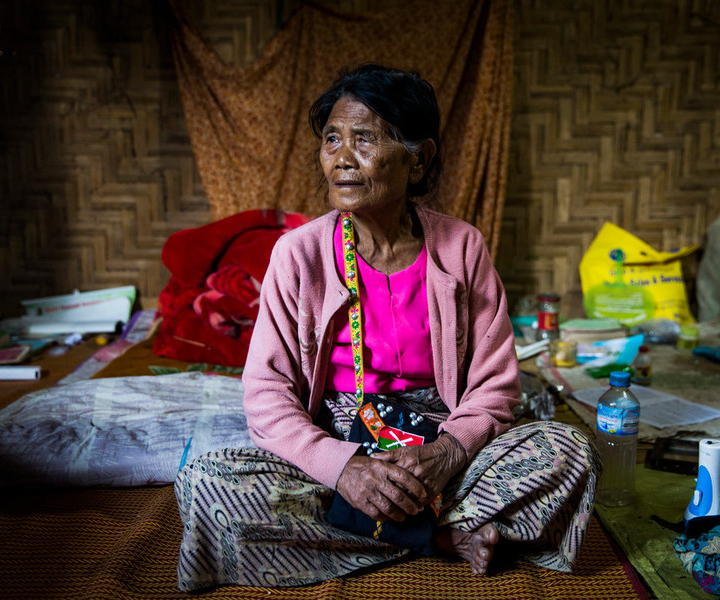
Who is an older person?
Most people think of age as a number. Many think that a person becomes “older” when they reach the national retirement age, which is usually 60 or 65.
However, older age is a social construct that changes in given contexts and situations. This is particularly true given that people are living longer and healthier lives, changing perceptions and stereotypes about older people in many societies.
People in their late 40s or 50s might be perceived as older workers and face discrimination when applying for a new job. However, that same person might not be perceived as an older person in their social circle, or at the doctor’s office.
This is why Amnesty International applies a “context-specific approach” to older age that takes all these factors into consideration when investigating human rights violations. We identify older people by how they’re perceived in society and how they see themselves, not by their numerical age.
Amnesty International uses the more neutral term “older people” rather than “elderly,” which can cast stigma on older people by associating them with frailty and dependence.
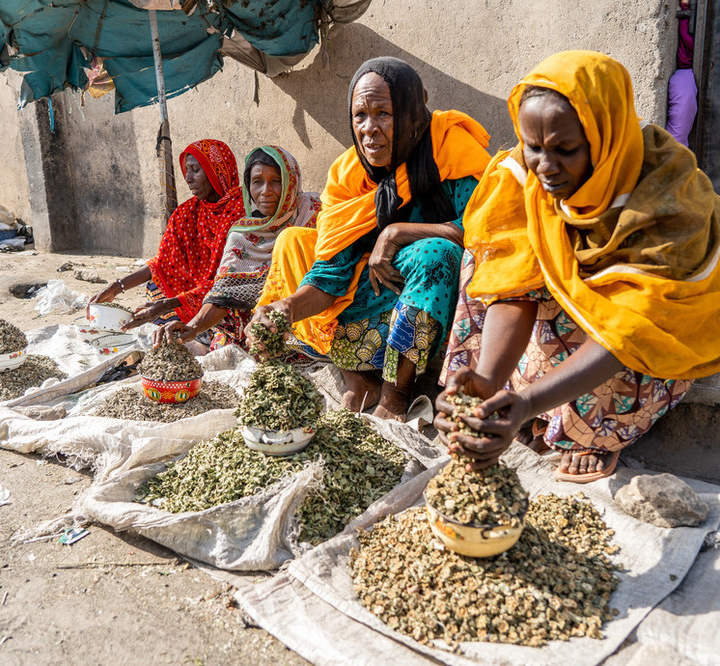
What international laws exist to protect older people’s rights?
Certain groups are protected by international conventions, including children, women, people with disabilities, and racial and ethnic minorities. By their nature, some of these treaties also afford protections to older people, including older women and older people with disabilities.
However, older people face discrimination that is not explicitly prohibited by existing laws.
For example, an older person may face discrimination in the workplace. An employer may assume that they are unable to master new technology, or that they will require more sick days than others.
Discrimination based on the assumption that people who are older must have a chronic illness impacts anyone who is older, regardless of whether they actually have a disability. Laws created to protect people with disabilities do not apply if the discrimination is based on perceived disability. This is one of many examples of the ways in which current laws do not protect older people, and why we need a separate convention to protect their rights.
Toward an international convention on the rights of older people
A UN convention would be a key step toward protecting older people’s rights. It would lay out the areas in which older people are most in need of legal protection, whether it’s abuse or neglect in care homes, discrimination in employment, or lack of adequate pensions.
An international convention would also force state parties to take proactive steps to prevent age discrimination and the abuse of older people.
According to a 2014 report by the World Health Organization, only 40% of countries had laws against the abuse of older people in institutional settings such as care homes. Only 59% of countries had laws that protect older people against abuse generally. Just one-third of countries had adult protection services in place to investigate possible cases of elder abuse.
A convention would likely lead to an improvement of legal protections at the national level.
A convention would also empower older people around the world to better advocate for their rights. And it would improve how human rights violations against older people are recognized and reported on, raising visibility on issues that have long been overlooked.
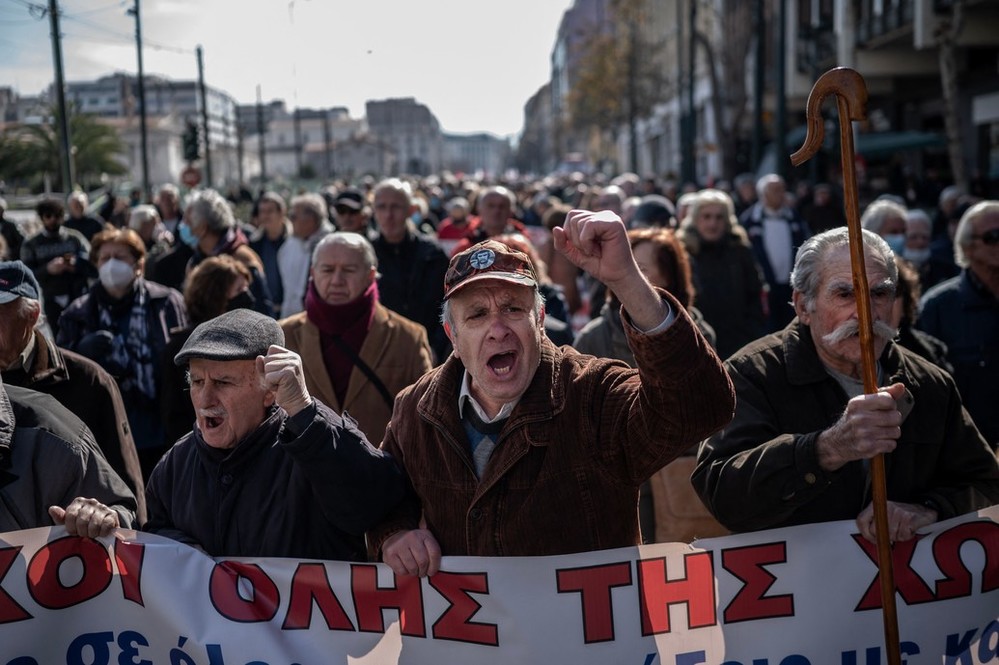
Older people in armed conflict
In armed conflicts, older people are often the last to flee. They may fear losing their homes or their land, which can be their most valuable asset. Sometimes they have physical, intellectual or other disabilities which make it more difficult to flee or to access information about evacuations. Other times, they stay simply because they do not know what kind of humanitarian or other support awaits them in displacement.
Surveys of Rohingya refugees in Bangladesh showed that people over 50 years old were the most likely to be killed during the Myanmar military’s assault on their villages in 2017. In Ukraine, the UN found that older people made up at least 34% of civilians killed, significantly more than their proportion of the population. During the 2020 conflict between Azerbaijan and Armenia, more than half of civilian deaths among ethnic Armenians were people over 60 years old. Sometimes these killings were extremely brutal, including beheadings.
Older people in north-east Nigeria have been murdered and tortured by Boko Haram. Fighters have used the threat of violence to force people to relinquish livestock and part of their harvest, which has caused extreme food insecurity for many older people in particular.
They then faced further abuse at the hands of the Nigerian military, which arbitrarily detained and tortured them. There is strong evidence that older detainees, especially older male detainees, have been most likely to die in Nigerian military detention. All civilians – including older civilians – are protected by international law in armed conflict. But older people are rarely spared. A lack of awareness of the risks older people face leave governments and other actors unprepared to help them evacuate or to provide other protection during an armed conflict.
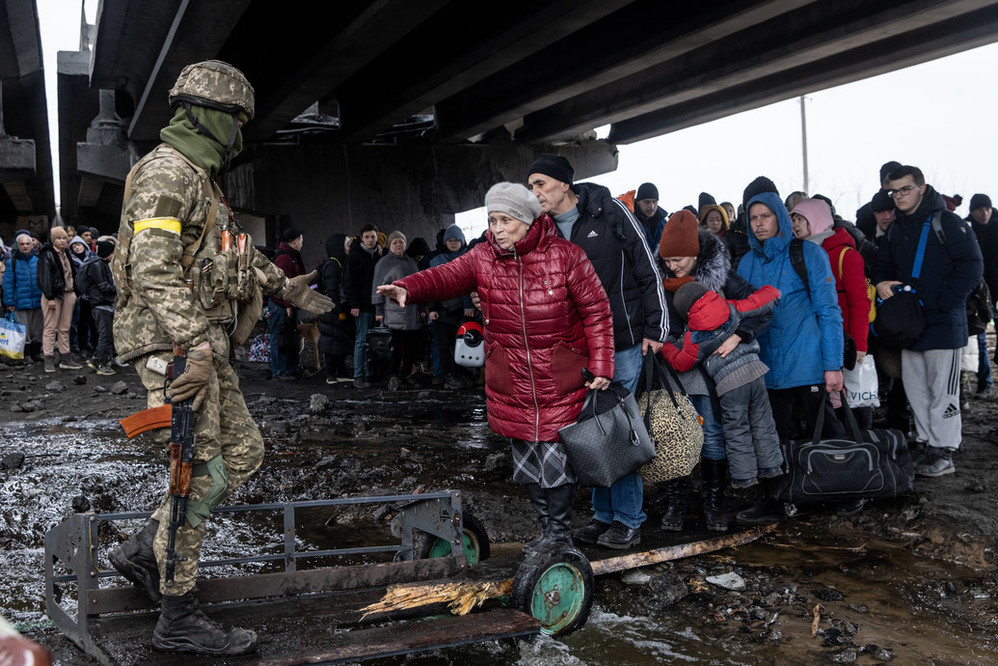
Case Study: Ukraine
In Ukraine, people over 60 years old make up almost one-quarter of the population, making it one of the ‘oldest’ countries in the world. As such, Russia’s full-scale invasion of Ukraine has had a devastating impact on older people in the country.
Amnesty International found that older people were staying behind in conflict-affected areas in large numbers. Sometimes they could not access information about evacuation routes. Other times they did not want to flee. They also remained behind in damaged homes that left them exposed to harsh winter conditions.
As a result, they make up a disproportionate number of civilian deaths and injuries from Russian attacks.
After being displaced, older people in Ukraine often struggled to find shelter. Due to very low pensions, many cannot afford to rent apartments or homes, and temporary shelters are not physically accessible to those with disabilities. As a result, thousands of older people have been forced to live in state institutions for people with disabilities, in violation of their rights.
Amnesty International is calling on international governments that support Ukraine to fund interventions that would include older people among those prioritized for accommodation and cash assistance. Older people should not have to languish in state institutions for the rest of their lives, after being displaced by Russian attacks.
Covid-19
From early in the Covid-19 outbreak, it was known that older people were one of the groups most at-risk of serious ill health and death after contracting the virus. Thousands of older residents in care homes lost their lives unnecessarily, due to neglectful government policies and under-resourced medical facilities. This risk was compounded for people who already lived with multiple health conditions, including physical disabilities and dementia.
In Belgium, Spain, Italy and the UK, the virus swept through an already vulnerable population, in large part because the authorities failed to adequately equip care homes and care workers to deal with the virus. Care homes did not have the necessary staff, and care workers often lacked Personal Protective Equipment (PPE) and tests to track the virus. As a result, care workers were unable to keep themselves and the older people they worked for safe.
To make things worse, these residents were almost entirely cut off from their families and the outside world for weeks on end. Isolation has a profound impact on the physical and mental health of older people including reduced movement and cognitive functions, loss of appetite, depression and a general loss of the will and desire to live.
Humanitarian assistance
Flaws in the humanitarian response to the pandemic presented similar risks. Older people living in crowded refugee camps in Bangladesh were often not provided accessible information about the virus or how to stay safe.
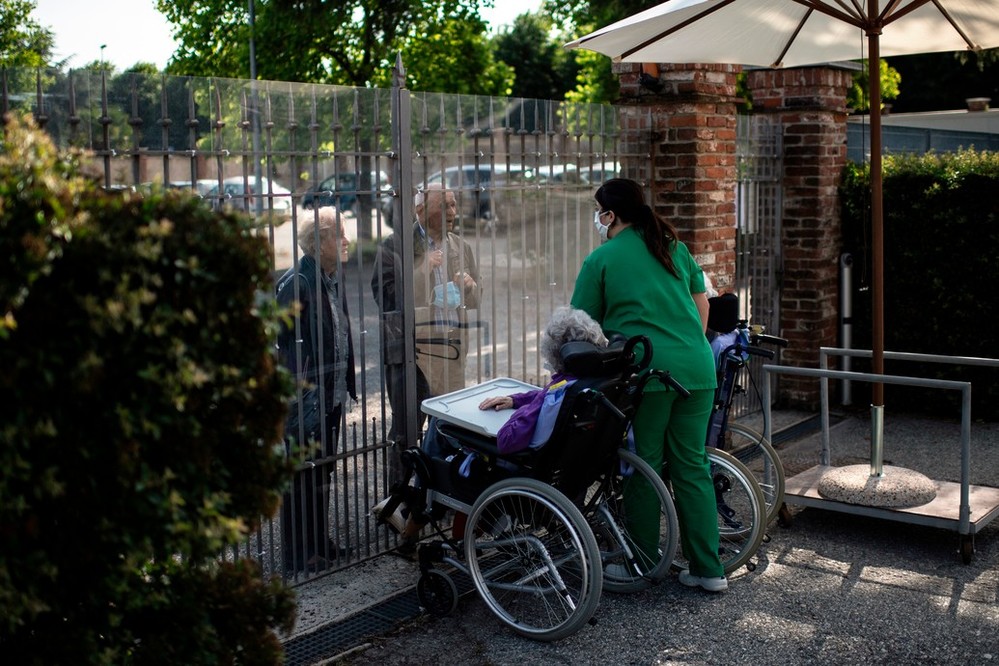
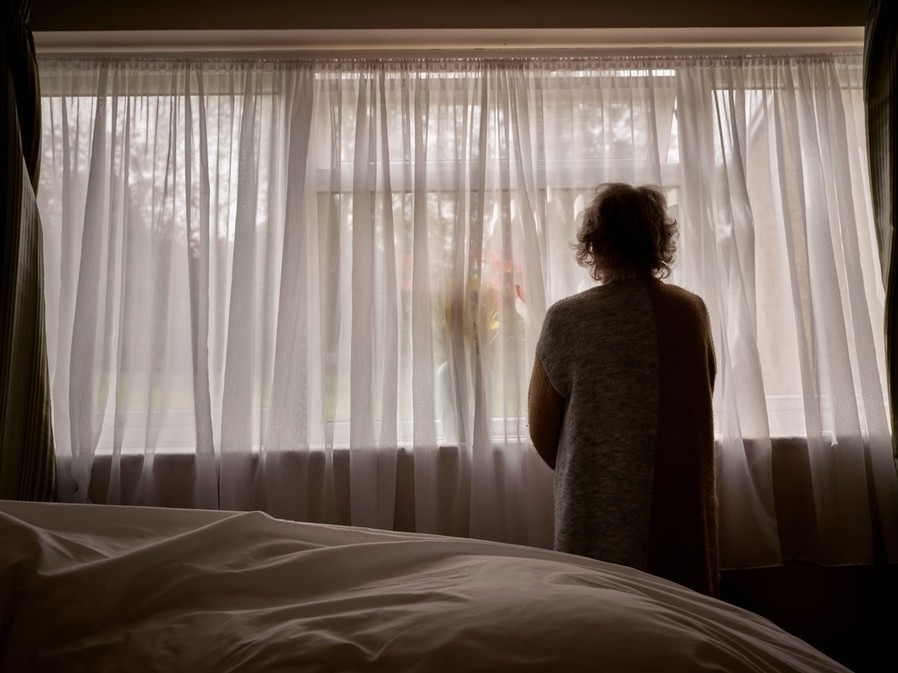
Case Study: United Kingdom
Amnesty International found that the UK government made negligent decisions that violated older care home residents’ rights to life, health and non-discrimination.
Days after the World Health Organization declared Covid-19 a global pandemic, NHS England announced the catastrophic decision to urgently discharge patients from hospitals into care homes and the community without testing them for Covid-19. This increased the risk of exposure in care homes, where the virus spread at an alarming rate, killing many people and leaving staff unable to cope.
A “complete breakdown” of systems
Care home managers and staff described the situation as “a complete breakdown” of systems at the start of the pandemic. Government authorities failed to provide accurate guidance on PPE or the need to isolate infected patients, failed to ensure regular testing of residents and workers, and illegally imposed blanket Do Not Attempt Resuscitation orders on residents of many care homes, in many cases without patient or family consent.
The UK government abandoned older people in care homes to die. In the first year of the pandemic, the virus claimed the lives of 42,341 people in care homes. That does not include nearly 30,000 “excess deaths” in care homes recorded in the same period, many of which were likely due to undiagnosed Covid-19.
Economic concerns
In many countries around the world, older people face discrimination in employment. This discrimination can be direct, like when companies issue mandatory retirement ages or maximum age limits on hiring. It can also be indirect, like when employers make ageist assumptions about an older person’s ability to work or learn new skills.
Workplace discrimination
In a study conducted by Amnesty International Belgium, nearly one in four older people who remained in work felt they had been treated differently after turning 55 years old. European courts treat age discrimination as “less severe” than other forms of discrimination. This allows employers to exclude older people from the workplace.
Access to pensions
Pensions provide a lifeline for older people. 68% of older people globally receive a pension. However, while people in Europe have better access, in much of Africa, Asia, and the Middle East, less than 30% of older people receive a pension.
Intersection with gender discrimination
The gender pay gap extends into retirement. As women are more likely to take breaks from formal work due to care responsibilities or to work in the informal economy, they often receive lower pensions than men. In 2019, women in the EU over 65 received a pension that was on average 29% lower than that of men. In Ukraine, women’s pensions are on average 30% lower than men’s.
Humanitarian response to crisis
When older people are faced with crises, economic vulnerabilities are heightened. During conflict, many older people are forced into displacement, where they face numerous economic challenges. Age discrimination is often embedded in humanitarian responses, and older people often struggle to access adequate healthcare, food, financial assistance and housing.
For example, the humanitarian response for Rohingya refugees in Bangladesh overlooked the unique challenges that older people faced and failed to meet their rights and needs including those related to health, sanitation, food, water and participation. In Myanmar, Amnesty found that displaced older people were often excluded from livelihood training and assistance programmes for displaced communities, in large part because of ageist assumptions and attitudes.
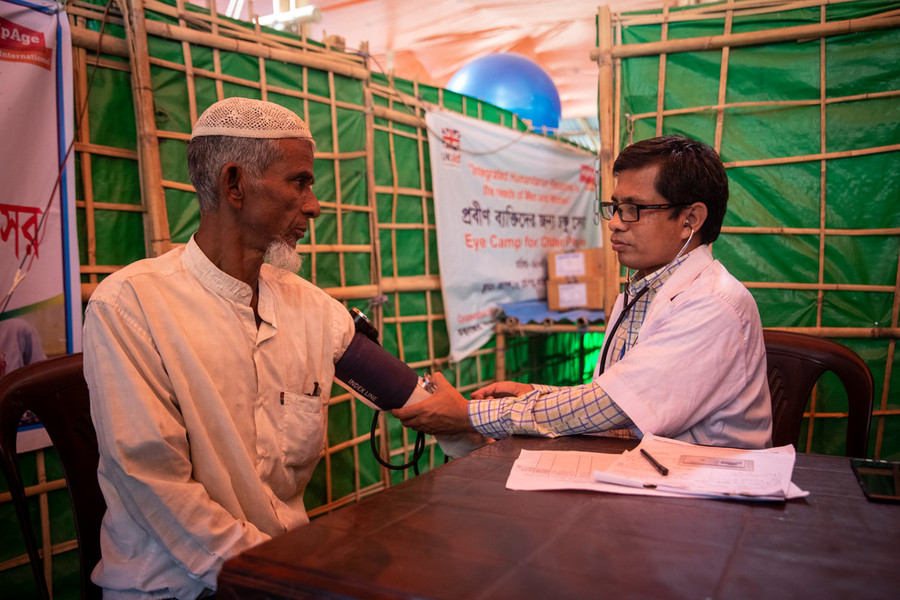
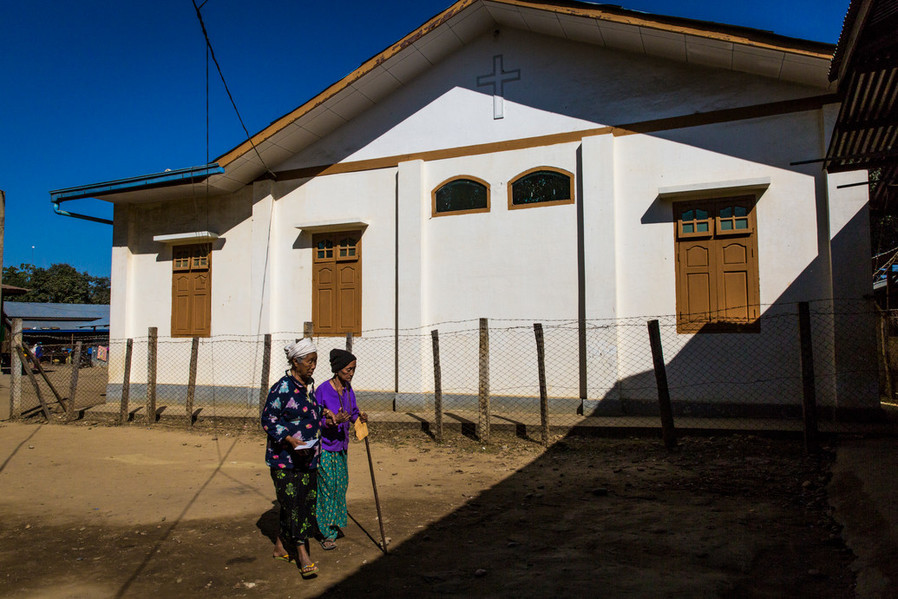
What is Amnesty International doing to protect the rights of older people?
Amnesty International will continue to shed light on older people’s experiences to ensure they are not left behind, particularly in crisis situations, conflict and in the distribution of humanitarian assistance. We will amplify the voices of older people and continue to conduct pioneering research, advocacy and campaigning to find ways to protect their rights.
At present, there is no global treaty on the rights of older people. Existing laws provide inadequate protection and have done little to increase the visibility of human rights violations against older people. Amnesty International is calling for a UN convention specific to older people to safeguard their rights, dignity and security.
